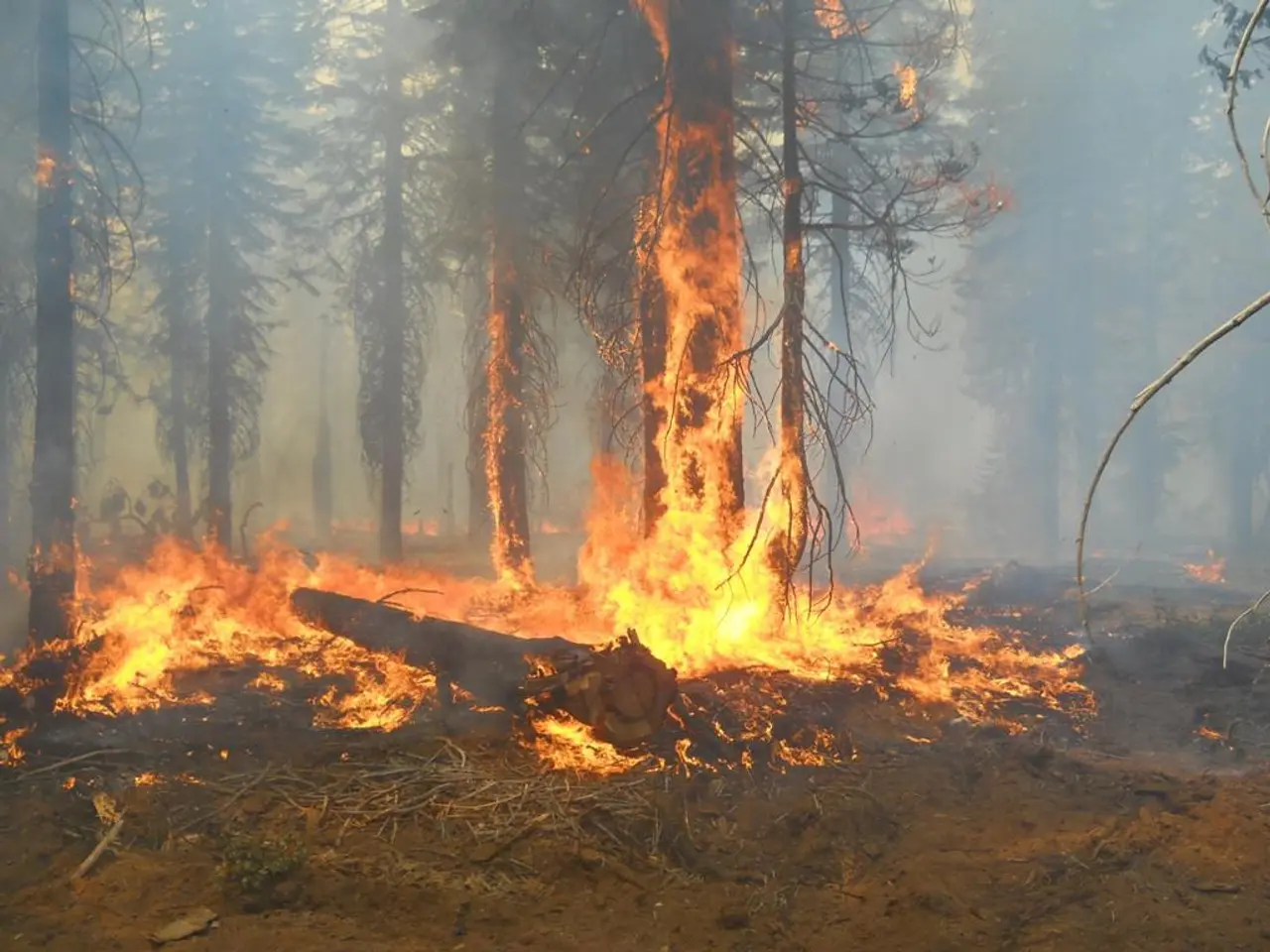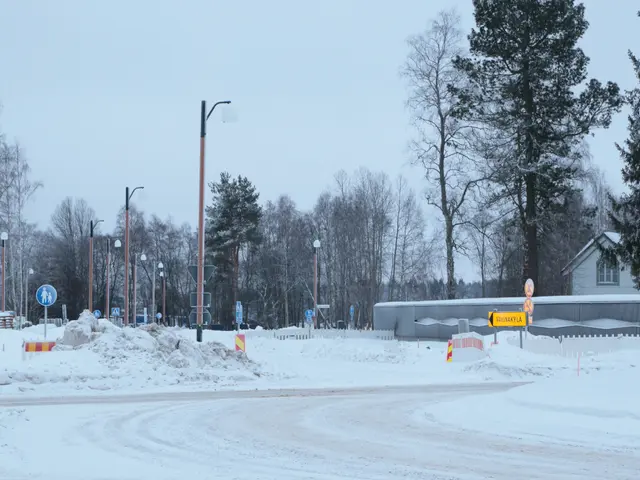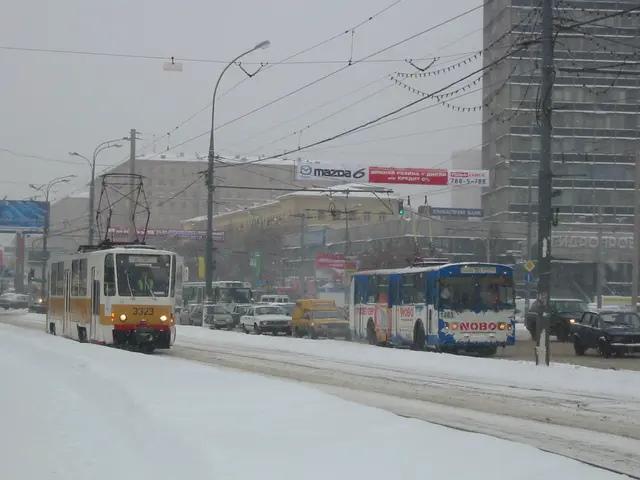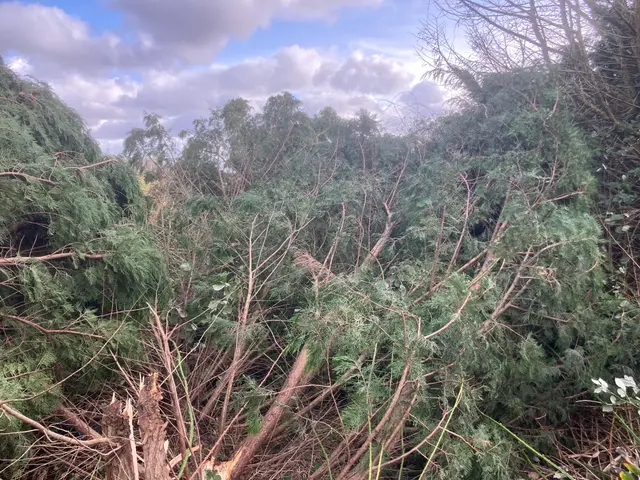Devastating Wildfires Sweep Across Europe Amidst Scorching Heatwave
Europe is currently grappling with its most severe wildfire season in nearly two decades, as temperatures soar and dry conditions primed for wildfires take hold. According to reports, approximately 8,948 square kilometers (3,455 square miles) of land have been burned across the European Union (EU) in 2025, driven by four major heatwaves [1].
The extreme fire activity is linked to global warming, as Europe is warming faster than any other continent, resulting in hotter, drier summers that create tinderbox conditions [1]. The heatwave currently affecting parts of Europe has reached temperatures of up to 43 degrees Celsius (109.4 degrees Fahrenheit) [1].
In Spain, firefighters are facing significant challenges near Las Medulas due to high temperatures and winds of up to 40 kilometres per hour (25 miles per hour) [1]. A wildfire in this area has caused damage to an ancient Roman mining site at Las Medulas, a UNESCO World Heritage Site [1]. Elsewhere in the country, over 31,000 people have been evacuated due to the wildfires [1].
Portugal is also battling a wildfire in its northern region, with nearly 700 firefighters on the front lines [1]. In Hungary, temperatures reached a new national high of 39.9C (104F) in the southeast on Sunday, breaking a record set in 1948 [1].
France has placed 12 departments on red alert, the country's highest heat warning, as the French national weather authority, Meteo-France, warns of extreme heat and strong winds [1]. Bulgaria is also expecting temperatures to exceed 40C (104F) on Monday with maximum fire danger alerts in place [1].
Wildfires are causing destruction and evacuations in several countries, including northwestern Spain, Bulgaria, and Albania [1]. In Albania, several homes have been destroyed, and more than a dozen fires are still active [1]. About 150 firefighters spent the night defending homes from a blaze near the port city of Split in Croatia [1].
The situation remains "very challenging" according to Alexander Dzhartov, head of Bulgaria's national fire safety unit [1]. The authorities will assess the damage to the Roman gold-mining area at Las Medulas once the fire is under control [1].
In response to the widespread fires, several countries, including Spain, Greece, Bulgaria, Montenegro, and Albania, have activated the EU Civil Protection Mechanism [2]. Multiple rescEU firefighting planes and helicopters have been deployed across the continent to combat the blazes [2].
As Europe battles these record-breaking wildfires, it's clear that the consequences of climate change are becoming increasingly apparent. The intensified heatwaves and dry conditions are creating tinderbox conditions primed for wildfires, threatening ecosystems, human settlements, and requiring extensive international firefighting cooperation.
Read also:
- Heavy rain causes flash floods in Hyderabad, resulting in severe waterlogging and disruptions to city life during a heavy downpour.
- Unpleasant nights plague city dwellers due to intense heatwave conditions
- Massive Colorado wildfires engulf over 120,000 acres, with firefighters hopes pinned on improved weather conditions
- Water shortage persists on Big Island








